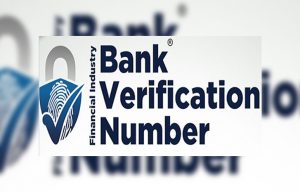By Rosemary Iwuala
The continuous registration for the Bank Verification Number (BVN) by Nigerian bank account owners has pushed the BVN database to 56 million as of November 20, 2022, according to data released by the Nigeria Inter-Bank Settlement System (NIBSS).
As of July 31, 2022, NIBSS data showed that the BVN database stood at 55 million. This means that a million new registrations were recorded in the last four months.
The data also shows that a total of 4.3 million new BVN registrations have been recorded so far this year, judging by 51.7 million recorded by December-end 2021.
Meanwhile, NIBSS data showed that active bank accounts in the country stood at 133.5 million as of December 2021. While there may be multiple accounts linked to a single BVN, industry analysts said there is still a gap that exists between bank accounts and BVN registrations, which must be filled.
Bank Verification Number is a unique and important number that allows individual accounts to be verified across the Nigerian banking industry. The unique ID number is issued to every bank customer at enrolment and linked to every account that the customer has at all Nigerian banks.
According to NIBSS, the BVN ensures that customers’ bank accounts are protected from unauthorised access.
In its bid to encourage more Nigerians to register for the BVN, the CBN in December 2019 announced the commencement of the classification BVN 2.0 plan that allows both the rich and poor in rural areas to access financial services.
Godwin Emefiele, CBN governor, who broke the news at the end of the 11th Bankers’ Committee retreat in Ogere, Ogun State, explained that BVN would be classified into two, BVN Premium and BVN Lite.
According to him, while the BVN Premium covers customers that can provide the 18 basic requirements for a complete BVN enrolment, the BVN Lite requires minimal documentation like names and phone numbers for bank customers, especially those in the rural areas that do not meet the full requirements.
The initiative, which is in collaboration with the Nigerian Communication Commission (NCC) and Mobile Money Operators (MMOs), would ensure more Nigerians are brought into the financial system.









